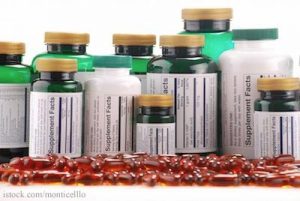Dietary supplements are very popular in this country. However, Center for Science in the Public Interest is warning consumers that buying these products over the internet can be risky.
 First, many “testimonials” from “customers” are fake. The same “person” is usually used repeatedly by different companies, writing the same thing about different products. Second, free samples are offered if you give the company your credit card number. But the time frame for canceling the charge is too short for you to decide if the product works for you.
First, many “testimonials” from “customers” are fake. The same “person” is usually used repeatedly by different companies, writing the same thing about different products. Second, free samples are offered if you give the company your credit card number. But the time frame for canceling the charge is too short for you to decide if the product works for you.
These companies will hype scientific studies that “prove” their product is effective as advertised. But these studies are usually worthless, not adhering to the usual rigor applied to credible nutritional and medical studies. For instance, one company didn’t compare its product to a placebo, so the “positive results” didn’t prove anything.
Fourth, the fine print is revealing. These statements often state that “testimonials are based on the experiences of a few people and you are unlikely to have similar results.” Fifth, the news sites these ads feature are usually fake, with false names, using symbols of actual news sites that do not endorse the product, and false reporter’s names.
Finally, if an ad for an internet supplement claims their product is a “trick”, be wary. The company just wants you to buy a supplement that is not proven and is usually overpriced.
You also have to be aware of supplement recalls. Many supplements are recalled every year because they contain unapproved drugs that can be dangerous or even lethal if taken by certain population groups. And since there is no FDA regulation of supplements, you never know if what you are buying is what you will get. No regulations exist to make sure that the ingredients listed on the package are actually in the product.
Supplements can be risky to your health in addition to your pocketbook. A spike in liver injuries attributed to dietary supplements was reported in 2013. Lack of FDA oversight in production and lack of FTC oversight in advertising contributes to this problem. An editorial in the New York Times that same year pointed out that about 50,000 adverse reactions to dietary supplements occur every year.




